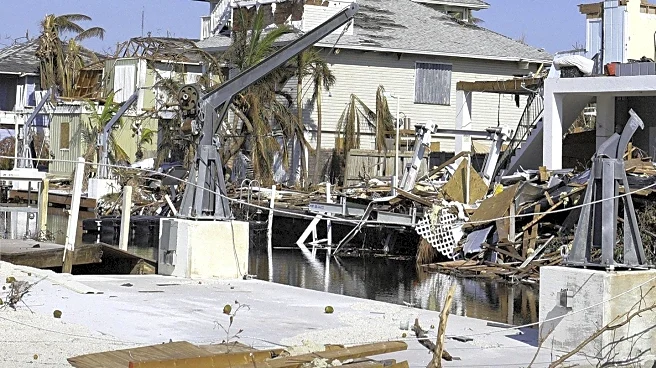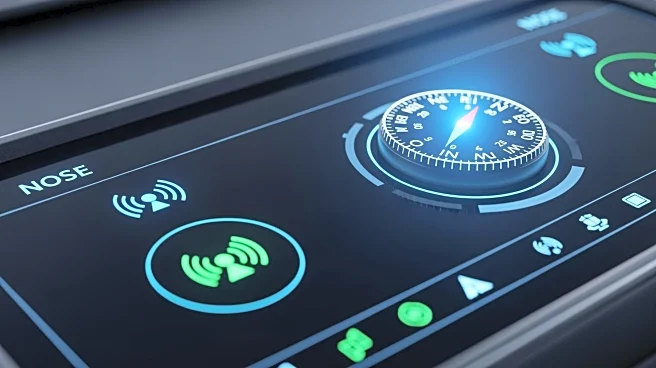What is the story about?
What's Happening?
A recent survey conducted by Talker Research and commissioned by 4Patriots highlights a concerning trend in disaster preparedness among American adults. Despite 90% of respondents acknowledging the importance of being prepared for natural disasters, only 46% have an emergency plan in place. The survey, which included 2,000 participants, found that younger generations, such as Gen Z and millennials, are more likely to have a disaster plan compared to Gen X and baby boomers. Specifically, 55% of Gen Z and millennials have a plan, while only 39% of baby boomers do. The survey also revealed that while 86% of respondents believe having a backup power supply is crucial, only 26% own a generator. Common preparedness measures include evacuation plans, backup supplies of food and water, and planned evacuation routes.
Why It's Important?
The findings underscore a significant gap in disaster preparedness, particularly among older generations. As extreme weather events become more frequent, the lack of preparedness could lead to severe consequences for those affected. The survey indicates that many Americans underestimate their vulnerability to natural disasters, with more than half believing they are less likely to be impacted than others. This complacency could result in inadequate responses during emergencies, potentially endangering lives and property. The survey's results highlight the need for increased awareness and proactive measures to ensure safety and resilience in the face of natural disasters.
What's Next?
With National Preparedness Month underway, there is an opportunity to address these gaps in readiness. Organizations and government agencies may increase efforts to educate the public on the importance of disaster preparedness, particularly targeting older demographics. Initiatives could include workshops, informational campaigns, and incentives for purchasing emergency supplies like generators. As extreme weather patterns continue to evolve, it is crucial for individuals and communities to develop comprehensive preparedness plans to mitigate risks and enhance resilience.
















